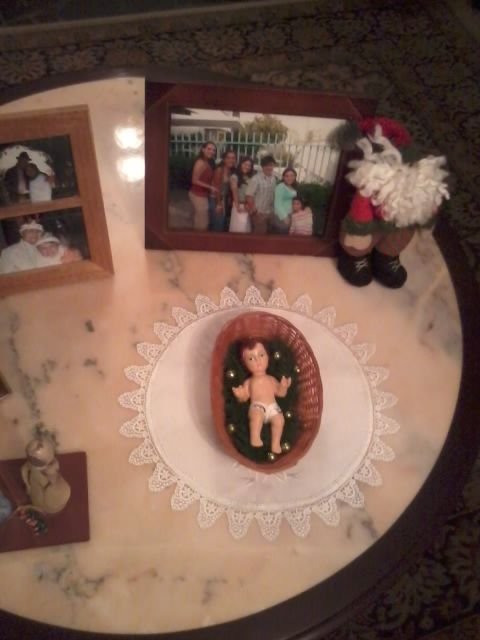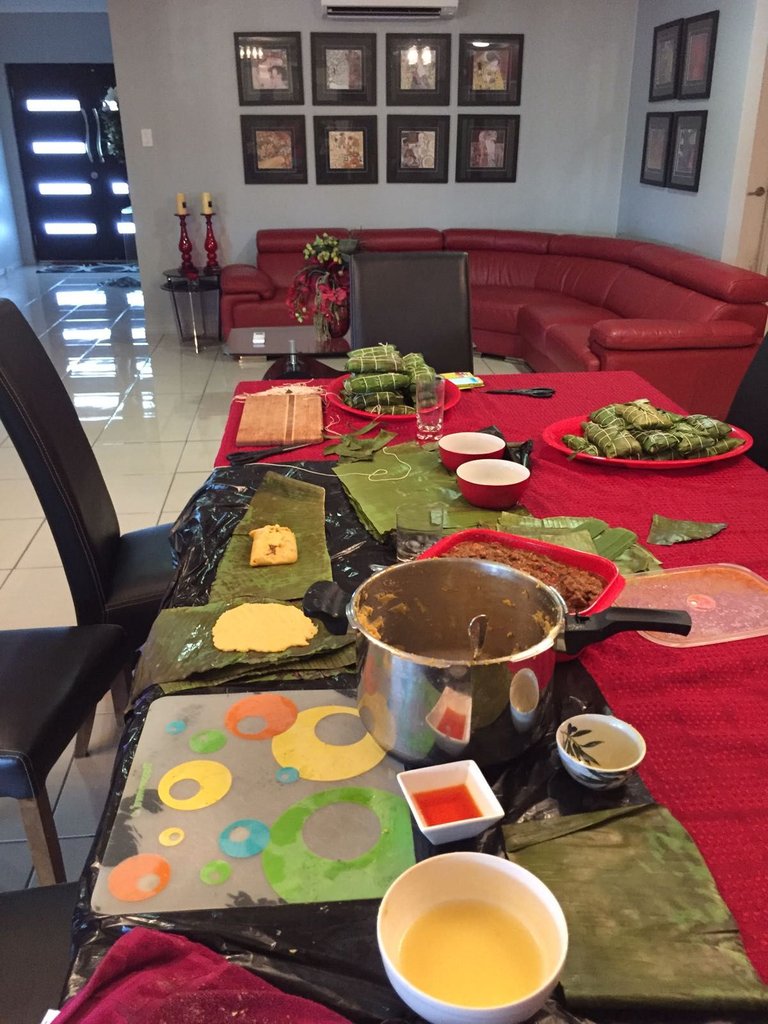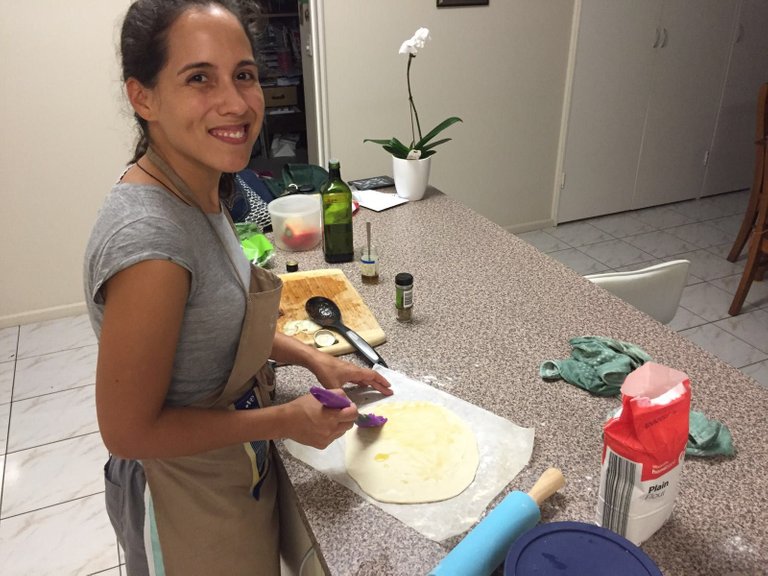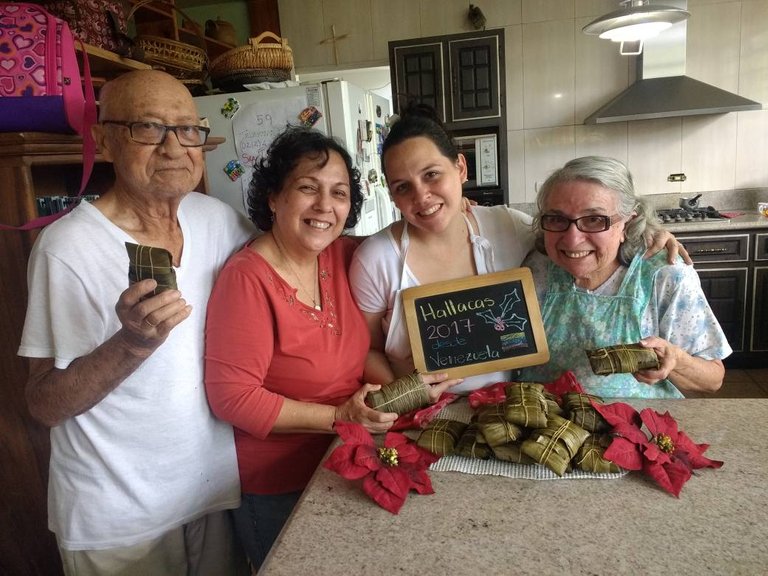Start this, my first post, with some melancholy. It is Christmas, a beautiful time, the most special of the year, full of details, colors, light, music, smells and flavors characteristic of this era. All of it is special.
It is a time, in many cases like for example in my country, where it is felt before the first of December and lasts until the commemoration of the visit that the three wise men made to the Child God.

I remember in my childhood, to feel that Christmas lasted a lot, it was a very special time because my mother also celebrates years on December 13 and by that time the whole house was completely decorated for Christmas: ready the little tree, the manger, the gifts , the hallacas!
Making the hallacas was a tradition! Each one had a task and each one knew what it was. For example: my maternal grandmother kept with her soul the recipe for all the preparation of the hallacas. I say I kept it because, like a good grandmother, its seasoning is unequaled (that of my paternal grandmother also, but it is a different seasoning, with Bolivian flavors). She has always had her recipe books as her treasures and when she became an adult, I understood that the hallacas are very tasty because she discovered that combining several recipes and experiences, plus the years of trying and modifying, she gave her own special recipe with her stamp personal. There is no equal! She knows from the ingredients of the stew to the specific texture of the dough, which is always rigorous and detailed.

On the other hand, with the usual bagpipes, my mother was responsible, once the stew was made the previous day, to assemble the hallacas, placing everything in its place year after year (and of course I learned at the letter): place the banana leaf, put a little of the preparation of the oil with onoto, spread the dough: - "Learn Daniela, not so thick because what we eat is dough, not so thin because it comes out" . Put a spoonful of the stew and then add the ingredients that decorate, complement and color the hallaca: four raisins, two paprika slabs, two pieces of chicken, two olives or a small onion. Finally the hallaca is closed with its particular folds and turns of the leaf, to pass to the next step in charge of my grandfather.
My maternal grandfather was in charge of, before starting all the preparation, to look for a package of banana leaves in the market suitable to the amount of hallacas we were going to make, which is why he observed them in detail. Then at home, he cleaned them very carefully, and then he found them, he received them to tie them properly: - "Dani, you cut the wick with this distance, then you extend it, you place the hallaca on the table . Then you give it a turn like that, another one like that, you cross the wicks and tie it well so that it does not disarm when it is boiling..
This is how the hallacas came back to my grandmother, who had already prepared the pot to boil, an exact amount and a precise time, neither more nor less, to cook properly.
I remember that over the years, my sister and I were learning, first to tie, then to select the leaves and finally to build the hallacas with my mom, until one day we had to do them from the beginning: find the recipes of my grandmother to help her buy the ingredients, chop them, etc.

All these flashbacks that I had at the beginning of Christmas is because since a few years ago, a tradition so rooted in my family, are very different from what I imagined as a child: my sister is not in the country, and despite the distance, she herself has made this her own tradition by making the hallacas, ham bread and Christmas sweets with her husband and friends in Australia, my cousins sometimes come to work, but rather come to apply the "control of quality".
This year has been much more distant than what I lived in that past full of memories: my 84-year-old grandmother decided that this year she would no longer participate in the elaboration of the hallacas, but would only supervise the elaboration, she gave us the recipes and our moral support. My grandfather on his part accompanied me to the market and helped me choose the leaves. Very delicately cleaned (as in previous years) and lashed with a smile that I will always remember. My mom and I did the rest. It was a great job, but it was worth it.

This makes me think that really those memories will never come back. They will only be memories that will live in me and that one day I will tell my children with emotion and I hope to share with them many other experiences, among them the one to guard with suspicion the recipe of our own hallacas with my life.